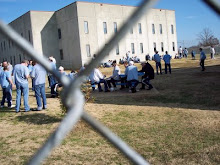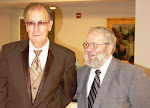Today I read ahead in Spurgeon's Daily Readings, including the one for Evening on Christmas Day:
"And it was so, when the days of their feasting were gone about, that Job sent and sanctified them, and rose up early in the morning, and offered burnt offerings according to the number of them all: for Job said, It may be that my sons have sinned, and cursed God in their hearts. Thus did Job continually." —Job 1:5
What the patriarch did early in the morning, after the family festivities, it will be well for the believer to do for himself ere he rests tonight. Amid the cheerfulness of household gatherings it is easy to slide into sinful levities, and to forget our avowed character as Christians. It ought not to be so, but so it is, that our days of feasting are very seldom days of sanctified enjoyment, but too frequently degenerate into unhallowed mirth. There is a way of joy as pure and sanctifying as though one bathed in the rivers of Eden: holy gratitude should be quite as purifying an element as grief. Alas! for our poor hearts, that facts prove that the house of mourning is better than the house of feasting. Come, believer, in what have you sinned to-day? Have you been forgetful of your high calling? Have you been even as others in idle words and loose speeches? Then confess the sin, and fly to the sacrifice. The sacrifice sanctifies. The precious blood of the Lamb slain removes the guilt, and purges away the defilement of our sins of ignorance and carelessness. This is the best ending of a Christmas-day—to wash anew in the cleansing fountain. Believer, come to this sacrifice continually; if it be so good to-night, it is good every night. To live at the altar is the privilege of the royal priesthood; to them sin, great as it is, is nevertheless no cause for despair, since they draw near yet again to the sin-atoning victim, and their conscience is purged from dead works.
Gladly I close this festive day,
Grasping the altar's hallow'd horn;
My slips and faults are washed away,
The Lamb has all my trespass borne.
Last night in one of our prison services I preached on Lev 16, the Day of Atonement, specifically about the High Priest removing his usual attire, the glorious robes of his office, and putting on the comparatively plain white linen of the other priests, prior to entering the Holy of Holies to make atonement for the sins of his people. How this pictures the Lord of Creation laying aside His eternal glory:
But made himself of no reputation, and took upon him the form of a servant, and was made in the likeness of men:(Php 2:7)
Now, having made Atonement for the sins of His people, He has ascended on high--
But this man, after he had offered one sacrifice for sins for ever, sat down on the right hand of God (Heb 10:12)
and now, this is our standing:
Having therefore, brethren, boldness to enter into the holiest by the blood of Jesus, By a new and living way, which he hath consecrated for us, through the veil, that is to say, his flesh; And having an high priest over the house of God; Let us draw near with a true heart in full assurance of faith, having our hearts sprinkled from an evil conscience, and our bodies washed with pure water.(Heb 10:19-22)
To me, the essence of the Incarnation: He came to do the Work of the Great High Priest.
At the close of the service, Carolyn sang this song, which seemed perfect for the occasion:
Before The Throne Of God Above(by Charitie Lees Bancroft, Vikki Cook)
Before the throne of God above,
I have a strong, a perfect plea,
A great High Priest whose name is "Love,"
Who ever lives and pleads for me.
Chorus 1:
My name is graven on His hands,
My name is written on His heart;
I know that while in heav'n He stands
No tongue can bid me thence depart.
No tongue can bid me thence depart.
Verse 2:
When Satan tempts me to despair,
and tells me of the guilt within,
upward I look and see Him there
Who made an end to all my sin.
Chorus 2:
Because the sinless Saviour died,
my sinful soul is counted free;
For God, the Just, is satisfied
to look on him and pardon me.
to look on him and pardon me.
Verse 3:
Behold him there! the risen Lamb,
my perfect, spotless Righteousness,
the great unchangeable I AM,
the King of glory and of grace!
Chorus 3:
One with Himself I cannot die,
My soul is purchased by His blood;
My life is hid with Christ on high,
with Christ, my Saviour and my God
with Christ, my Saviour and my God








